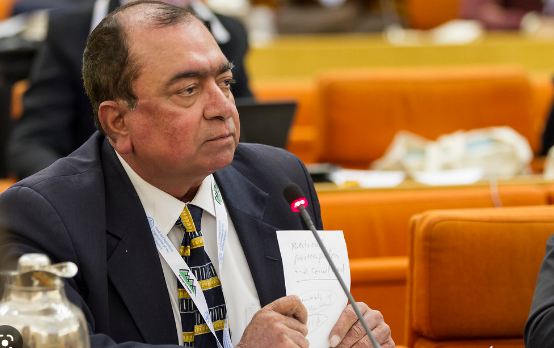
Islamabad : Speakers here on Saturday urged the government to fast track the process of economic and energy cooperation agreements with Russia after the recently signed Memorandum of Understanding (MOUs). It would ease the economic conditions for the citizens. There shall be no delays from the Pakistan side while the US has also conceded to Pakistan’s need for a discounted rate. Transportation and freight will be the main constraints that may make the proposition difficult. Secondly, payment terms with Russian Crude suppliers would be another impediment if not promptly handled and sorted out for smooth sailing in this regard. Refiners are concerned about payment arrangements and terms under prevalent conditions; where Russia is engaged in war with Ukraine, Pakistani Banks may not open LCs for Russian Crude Oil. Also, Russians might not want to accept payment in US Dollars. Refineries are already under obligation to honour long-term Sale and Purchase Agreements with Middle Eastern Suppliers including KPC, ADNOC, and ARAMCO and therefore, any immediate import of Russian Crude Oil seems a remote possibility.
The webinar was organized by Devcom-Pakistan (Development Communications network) and DTN on Saturday on the subject “Russo – Pak Economic and Energy Cooperation, Scope and Challenges”. Senator Lt. General (r) Abdul Qayyum was the keynote speaker. The guest speakers included foreign affairs expert Dr. Salma Malik, energy and environment expert Qaiser Aijaz, and Devcom-Pakistan Executive Director Munir Ahmed. Hussain Ali Shah, Iftikhar Ahmed, Sarah Khan, Natasha Jameel, Maliha and Ayan Mitra also spoke on the occasion. Senator Lt. General (r) Abdul Qayyum said: The recent MOUs with Russia are a long-awaited icebreaking that can lead to an important partnership and investments in defence and oil and gas development in Pakistan after the China-Pakistan Economic Corridor. But, the current challenges could be the internal extreme political polarization in Pakistan, lack of foreign reserves and low productivity in every field, and balance of payment. "Pakistan needs to have sustainable and balanced foreign relations while improving the exports, and attracting external investments. Political stability and consistency of policies shall be the key agenda of the governments in Pakistan whosoever replaces the previous government. Secondly, Pakistan shall actively take part in the multilateral forums besides improving its indigenous economy, domestic peace and governance. These measures will help the country to develop more than one economic and energy corridor.
Devcom-Pakistan Executive Director Munir Ahmed said: A comprehensive Russo-Pak Energy Corridor is very crucial for both countries at this point. Strangely, overlooking the sacrifices of about seventy years, the US has left Pakistan in isolation for siding with China in the new US-NATO cold war against Pakistan’s iron friend. Russia, on the other hand, is facing a difficult battle to defend a Moscow-leaning Ukraine that has been seized by US-puppet presidents since the so-called “Revolution of Dignity,” prompted by US touts. That revolt compromised the honour of common Ukrainians. While the Russian Federation defends its friends in Ukraine, the US and the West have destroyed Ukraine and frozen $330 billion in the Russian government and citizen assets.
Munir Ahmed said that the time is ripe for both the countries to think about the larger and more comprehensive Russo-Pak Energy Corridor (RPEC), similar to the China-Pakistan Economic Corridor (CPEC). Both corridors can help Pakistan have historic economic growth and prosperity, while the country can also play its backbone role in the regional economic bloc. Whoever takes it up will be the hero of the nation and the region too.
Dr. Salma Malik said:The Pakistan-Russia energy cooperation deliberations is a welcomed step, yet needs to be viewed with cautious optimism, given the larger geo-economic dynamics. In a world with growing energy needs, conflicts such as that between Russia and Ukraine or China's economic outreach play a significant role in the advancement of geopolitical interests. Alliances, partnerships, sanctions and global regimes are used both as enablers and restrictive measures by global powers - and countries as Pakistan need to effectively apply diplomacy and power potential to get maximum benefits. She said there is a need for strong governance, a sustainable policymaking and keeping key stakeholders on board. The reason why the oil deal would work now than before, as with growing oil demand internationally, countries such as Pakistan are facing dire economic challenges and as in US administration's words they value Pakistan's economic stability and will support conversations between Pakistan and international partners.